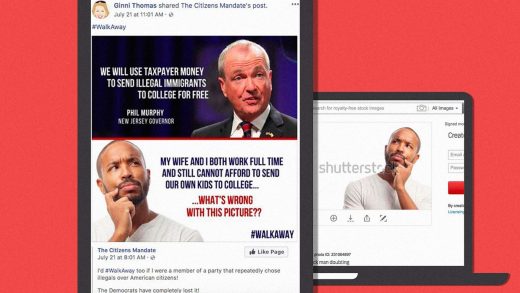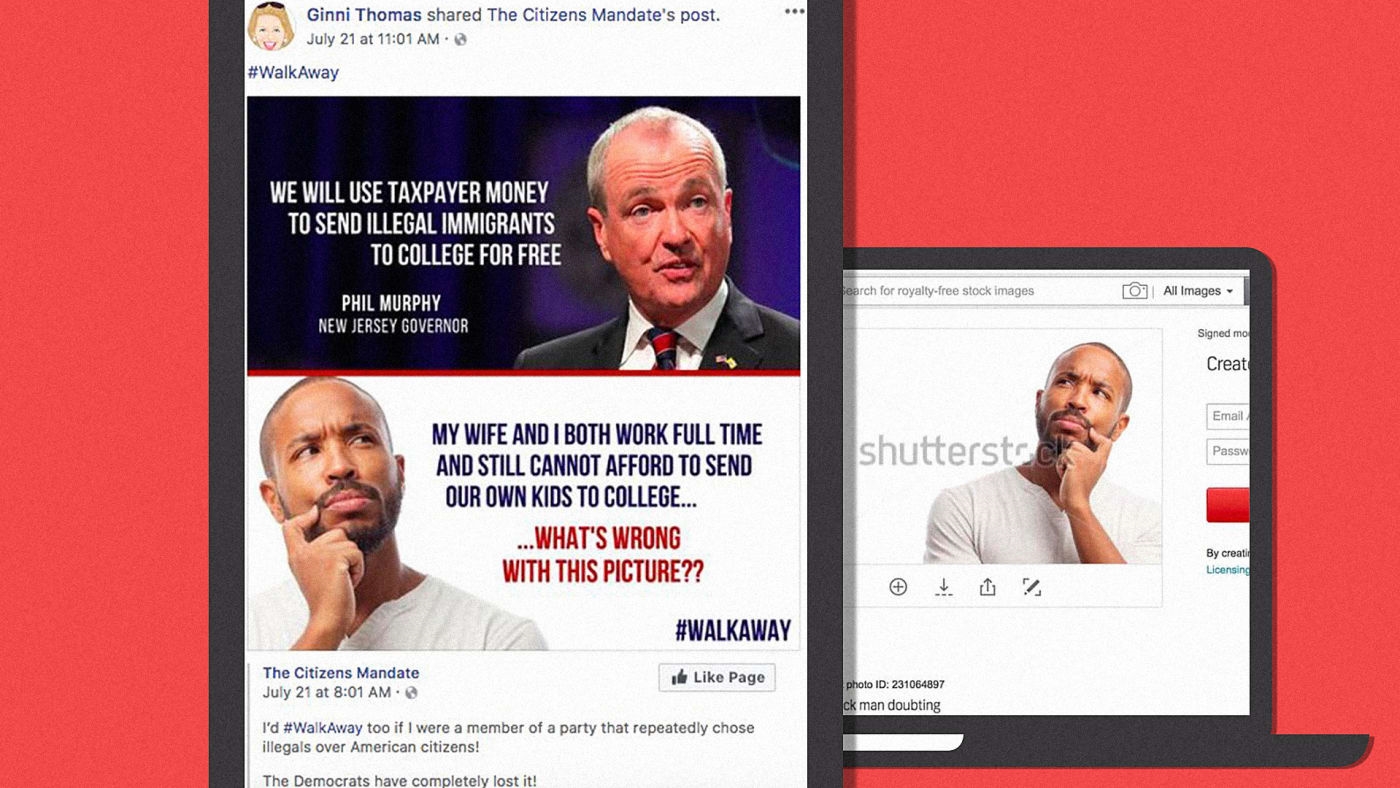These people who “walked away from the Democrats” are stock-photo models
“I walked away from the Democrats because when did it become acceptable to: encourage the assassination of the president [SIC],” proclaims an ad from the conservative advocacy campaign The Citizens Mandate, next to a photo of a black woman with a quizzical expression on her face. The implication is that she is a real person–a former Democrat who has abandoned the party.
Except that the photo is a royalty-free stock image that appears to be from Shutterstock, as Slate journalist Mark Joseph Stern points out.
Ginni Thomas, wife of Supreme Court Justice Clarence Thomas, shared images of black people who had allegedly left the Democratic Party.
They were actually models in royalty-free stock photos. pic.twitter.com/FjfpZzv8mN
— Mark Joseph Stern (@mjs_DC) July 23, 2018
The original post on Facebook from The Citizens Mandate had 35,000 shares, with hundreds of comments that are either gushingly supportive or deride the post as Russian propaganda. As Stern points out, Ginni Thomas, wife of Supreme Court Justice Clarence Thomas, was among those who shared it on Twitter.
It’s just the latest example of how memes can be used as visual propaganda that contributes to political polarization. Memes, of course, have been around for years, but they gained political traction in the 2016 presidential election, where image-based, easily shareable bits of political messaging became a powerful way to communicate with, and shape, voters on assorted social media platforms. As The Guardian put it in 2016, “They have grown into a form of anarchic folk propaganda, ranging from tolerable epigrams to glittering hate-soaked image macros.” That continues today–and even a bad Photoshop job hasn’t stopped prominent people like Ginni Thomas from sharing these images.
According to Shutterstock’s General Counsel Heidi Garfield, the company’s licensing agreement prohibits the use of stock photos in any explicitly political context–including endorsing a political party–without a special permit. A Shutterstock spokesperson says the company is investigating whether the photos for this ad were in fact licensed through its platform (because the images appear on multiple stock photo websites), and if they were appropriately licensed for political use.
But Shutterstock, like many tech platforms, insists it’s agnostic on the larger political conversation. “It is likely that Shutterstock’s enforcement of its licenses can address some of these issues, if, for example, such use is defamatory or deceptive,” Garfield tells Fast Company in a statement. “However, we have to be careful not to put ourselves in a position of taking a side on an issue that in some ways represents a proxy for other broader societal differences.”
Fake and doctored political imagery abounds. On Monday, a Facebook video of an “interview” between conservative TV host Allie Stuckey and New York’s Democratic nominee for Congress Alexandria Ocasio-Cortez was presented as a live interview–but it’s actually a chopped up and heavily edited version of a real interview Ocasio-Cortez did with PBS. The video has received 1.2 million views in less than 24 hours. In the future, machine learning-enabled fake videos might literally put words in someone’s mouth to spread misinformation, as researchers were able to demonstrate recently. But in some ways, the stock photo ads are even more frightening. They show how little it takes for people to be duped.
We will update this story with more details of Shutterstock’s investigation as it unfolds.
Fast Company , Read Full Story
(26)



